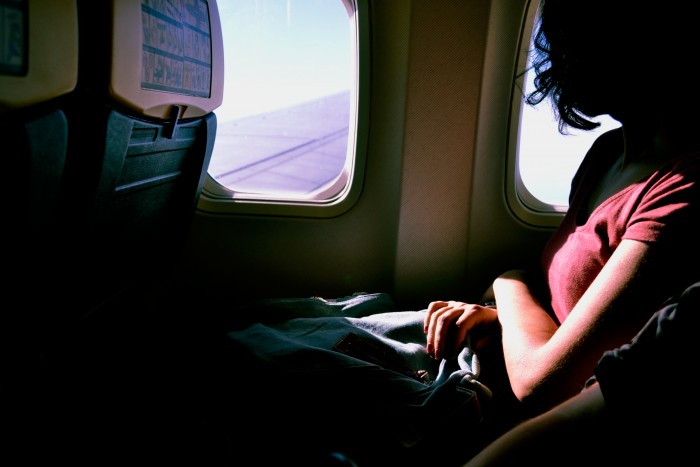
Sofia Sforza/Unsplash
Why does everyone hate tourists? Because we gawk. We rhapsodize about boring stuff like buildings (“Oh my gosh, the architecture!”). We snap pictures of subway entrances and sandwiches.
In short, we pay attention in a way we usually don’t in our owns hometowns, and that focus and excitement reawakens us to the thrilling power of place. In fact, a really good vacation makes us fall in love with our destination. Granted, it’s a low-grade version of place attachment—more infatuation than long-term commitment—but it can offer an emotional boost, even after we’re back to desk jockeying (sob).
Everyone seems to hate tourists because we often stand out in our behavior—gawking at the unfamiliar, snapping photos of things others might find mundane, and getting overly excited about seemingly ordinary aspects of a new place. But perhaps this is what makes traveling so special—it forces us to pay attention in ways we usually wouldn’t in our hometowns, leading to a deeper connection with the places we visit. This focus, this newfound excitement, reawakens our sense of wonder and curiosity, turning even the smallest details into something extraordinary.
Here, 3 ways to keep the happiness lift going well after your vacation days run out.
Share your trip on social media. Perhaps you intended to avoid the cliché of the obligatory vacation photo slide show. But the reality is, posting about the place might give you a buzz of good feelings. In one study, University of Florida researchers asked participants to imagine that they had just returned home from a great vacation—and now they were posting about it on Facebook. Afterward, the social media sharers felt more positive emotions about their hypothetical vacay—enthusiasm, pride, excitement—than those that didn’t post.
Curate your photos. When researchers from the Manchester Business School and the University of Manchester in the United Kingdom wanted to guage how much tourists loved their destination, they asked them to pick out “photos that you feel encapsulate and demonstrate your love for (destination).” Why? The authors suggest that “sometimes emotions are difficult to express in words, and asking respondents to produce an image provides a ‘different way in.’” So pick the pic of the happiest moment of your trip, put it on your phone or your laptop as a screen saver, and relive the good times again and again.
Figure out why it worked. Girish Prayag and Chris Ryan, business professors from France and New Zealand, hypothesized that the most loyal tourists—the ones who returned to the same spot year after year—were also the most personally engaged or involved with the place. So they quizzed 705 travelers to the island of Mauritius in the Indian Ocean about their place involvement by asking them to agree or disagree with statements like these:
- I get pleasure from being on holidays here.
- I have a lot of interest in Mauritius as a holiday destination.
- Being on holiday here is a bit like giving a gift to one’s self.
When vacationers agreed that Mauritius was interesting and pleasurable, they were also more likely to agree with place attachment statements like
- Mauritius is a very special destination to me.
- No other place can provide the same holiday experience as Mauritius.
- Mauritius is the best place for what I like to do on holidays.
Understanding why a vacation worked so well for you not only cements the feeling of place attachment, it helps you determine what that place says about you and your personality. That may make you want to go back—or it may help you pick a similarly rewarding experience next year.
One word of caution: Happiness-inducing as a vacation spot can be, that’s not a signal that you should pick up and move there. As Katherine Loflin, PhD, author of Place Match: The City Doctor’s Guide to Finding Where You Belong, points out,
Vacation is a great way to get a feel for a place, and you should visit a place before you decide to live there. But that cannot be the extent of the dating you do with that place. It would be like meeting someone on a first date and then immediately eloping to Las Vegas.
It’s good to love your travel destination. It’s even better to love your hometown.